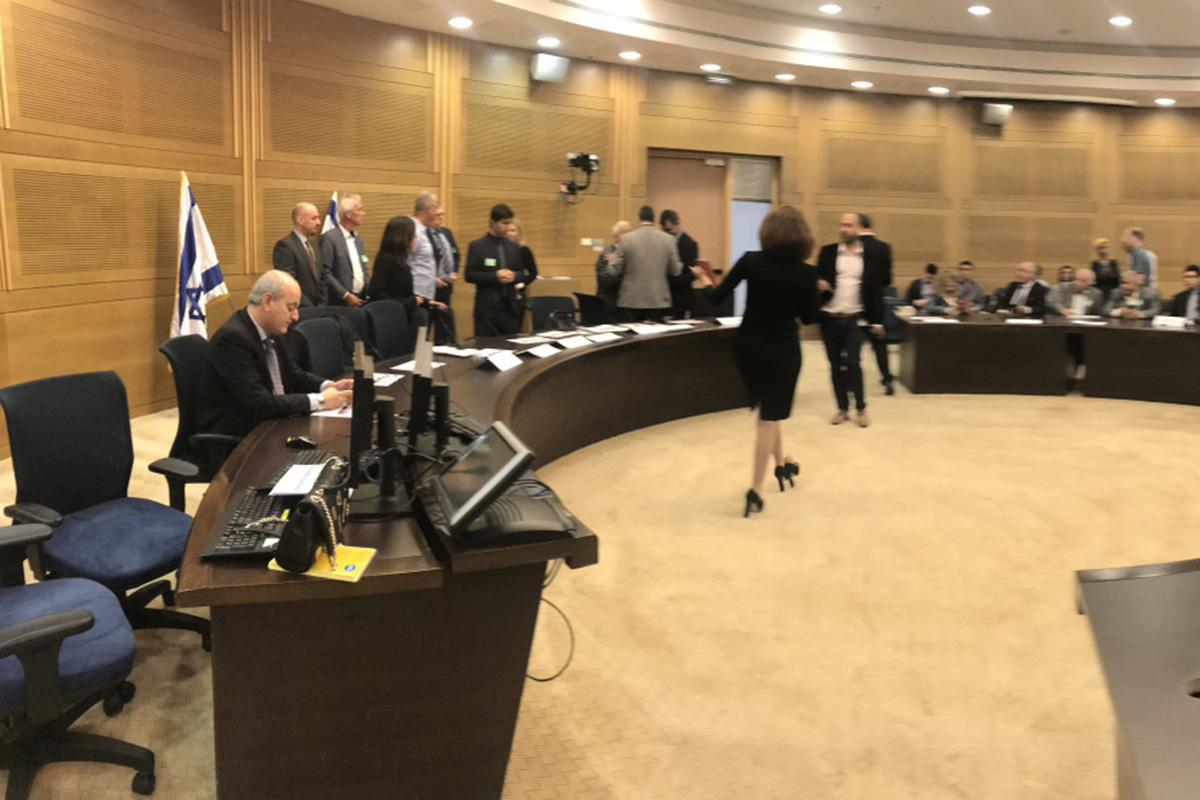MKs unite to support Kurdish people at Knesset
This first-of-its-kind Knesset event was chaired by Ksenia Svetlova, the Chairperson of the Lobby for Strengthening the Relationship between the State of Israel and the Kurdish People.
When every nation turned away from Kurdish aspirations for independence, Israel alone stood with the Kurdish people, recalled President of the Kurdish European Society Kahraman Evsen at a Knesset conference Wednesday devoted to Kurdistan and Israel.
Speaking Tuesday to a room full of MKs and Kurdish and Jewish NGO heads and activists, Evsen said Kurds and Jews share the same values and principles.
“We need to enhance our cooperation at all levels,” he said.
This first-of-its-kind Knesset event was chaired by Ksenia Svetlova, the Chairperson of the Lobby for Strengthening the Relationship between the State of Israel and the Kurdish People.
Svetlova hosted the event with the International Legal Forum, a global legal coalition initiating and centralizing efforts for human rights in the international arena.
Titled “Kurdistan and Israel, together towards peace and stability in the Middle East,” the gathering included a long list of activists and intellectuals who have been active in recent years to encourage closer relations between Kurds and Jews as well as between the Kurdistan region and Israel.
Opening the meeting, flanked by Zionist Union’s Tzipi Livni and Yossi Yonah, Bayit Yehudi’s Eli Ben-Dahan and Yifa Segal of the International Legal Forum, Svetlova said that until Israel can celebrate the creation of a Kurdish State, it should focus on other aspects of cooperation.
“There are similarities in our destinies,” she said, speaking on November 29 and reminding listeners of the auspicious anniversary of the UN partition vote in 1947.
“It is not just another day, today we celebrate the recognition of the State of Israel by the United Nations,” she said.
“We understand we live in a world of challenges and there is an extremist religious ideology that is taking over with terrorist organizations and we as a state and you [Kurds] face the same nature of threat and it needs to be addressed by all of us,” said Livni.
“You should know, here you can find friends. I am in the opposition and we have a gap with what the ideology of the government coalition is, [but] when it comes to Kurdish people we all feel the same.”
Yossi Yonah, whose parents were born in what is now the Sunni Arab heartland of Iraq near Ramadi, also stressed the common characteristics that Jews and Kurds have historically in seeking a state of their own through self-determination.
“They have been suffering persecution in the various states they exist, so this enhances the justification of the demand for self-determination.”
Besides reminding those present that Jews and Kurds have a shared historical struggle for independence and share similar enemies, several of the speakers noted the fact that their relatives came from Iraq or Kurdish areas, or that family members had married Kurdish Jews.
The parents of Moshe Raz of Meretz, for instance, had come from near Mosul to British Palestine via Beirut in 1931, he said.
Deputy Minister for Public Diplomacy Michael Oren recalled serving alongside Jews of Kurdish origin in the army.
Opposition leader Isaac Herzog said that Israel’s relations with Kurds go back to the era of Prime Minister David Ben-Gurion and praised the “impressive democratic society” and booming economy of the Kurdistan region of Iraq.
“Clearly the Kurdish people are locked between forces and part of an international game that is extremely complex,” he said.
He expressed that the issues facing Kurds should be discussed in the Knesset and that Israel has something to contribute to this conversation.
Oren agreed that Kurds are deeply deserving of freedom.
“Someday the Kurdish people will receive the sovereignty which they so richly and historically deserve. Therefore we have to prepare the ground.”
Like several others, he said that cooperation could also include agricultural support and other economic issues.
For some of the Kurds present, the event was a welcomed sign. Zorav Darisiro from the Free Kurds NGO in Norway said that he was happy to see Kurdish Jewry was alive and well in Israel. He even found an elderly Kurdish man to speak Kurdish to who had come to the meeting.
Ceng Sagnic, the Coordinator of the Moshe Dayan Center’s Kurdish Studies Program, praised the professionalism of those present and said that Kurds could benefit from the experience Israel has after 69 years of independence.
Dr. Mordechai Zaken, an author and expert on Kurdish Jews, said that Israel’s relationship with Kurdistan goes back decades and that the group he founded called the Israeli-Kurdistan Friendship League had pioneered this connection in the 1990s.
Joel Rubinfeld, the President of the Jewish Coalition for Kurdistan, said that after a century of broken promises, "the time has come for the international community to set right injustices of the past by recognizing the independence of Kurdistan." He also noted that the support of Kurdistan unites Knesset members across the political spectrum. Yifa Segal, whose International legal Forum helped organize the conference, said she relates to the Kurdish issue on numerous levels, as a Jew, Israeli and human rights lawyer. It was particularly relevant, "the similarities of our nations and the inspiring friendship," she said, hoping that we could see this friendship as a bridge of peace and way to learn from each other.
For Svetlova, the historic meeting was a chance to build on the historic relations with Kurds and to continue down the path of a strategic alliance, which includes working together against common enemies in the region.
“The invitation is open [to continue working together],” she said in her concluding remarks.
Source: The Jerusalem Post / Seth J. Frantzman

